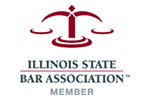800.825.9260
What is Sexual Harassment in the Workplace: What an Illinois Employer Should Know
Commonly known as the #metoo era, recent years have seen a growing awareness of the widespread problem of sexual harassment and sexual assault, especially in professional or workplace settings. When it comes to inappropriate behavior in a professional work environment, the “I’ll know it when I see it” standard no longer applies, forcing Illinois and Chicago business owners to face pressing questions when it comes to identifying and preventing such behavior at their places of business. What exactly constitutes sexual harassment? Is the company liable for the actions of its employees? How does a business protect itself? These are some of the questions that the Chicago Business Lawyers of Bellas & Wachowski are being asked by Chicago-area based business owners.
What is Sexual Harassment?
Sexual harassment in the workplace is a form of unlawful discrimination based on gender. In Illinois, the legal bases for workplace sexual harassment claims are codified by the Illinois Human Rights Act 1 (“IHRA”) and corresponding federal law under Title VII of the Civil Rights Act of 1964 2 (“Title VII”). The IHRA details two main categories where “any unwelcome sexual advances, requests for sexual favors, or any conduct of a sexual nature” may amount to harassment enough to give rise to a civil lawsuit. Those categories are: quid pro quo and a hostile work environment.
Quid Pro Quo: “Quid pro quo” sexual harassment is where submission to sexually based or sexually discriminatory conduct is either explicitly or implicitly made a term or condition of employment or when employment decisions are at least partially based on submission to or rejection of the conduct. For example, a boss offering a promotion to an employee if she agrees to date him or firing her for not yielding to his advances would constitute quid pro quo sexual harassment. While most victims of sexual harassment are women, the law applies equally to both genders: a female supervisor who does not promote a male employee based on his rejection of her advances is guilty of quid pro quo harassment as well.
Hostile Work Environment: A hostile work environment is created when sexual or gender-based discriminatory conduct interferes with the employee’s job performance or creates an intimidating, hostile, or offensive work environment. This behavior does not have to be verbal, it may also be written or physical (even though it does not necessarily escalate to sexual assault). The accused harasser’s intent is irrelevant – even if they considered their behavior to be unoffensive or did not mean to create a hostile environment. It only matters whether a reasonable person (or a jury of twelve reasonable people) would find that such behavior may offend, humiliate, or intimidate another person.
Proof of Sexual Harassment
In order to successfully prove a claim of sexual harassment, an individual employee must present sufficient evidence to support each of the following elements:
- That the victim was subjected to unwelcome harassment;
- The harassment was based on their sex;
- The harassment was severe and pervasive enough to alter the conditions of their environment and create a hostile and abusive working environment; and
- There is a basis for employer liability. 3
Unwelcome Harassment: Courts have generally held that an employee must first demonstrate that the behavior was unwelcome by his or her conduct at the time the incident(s) took place. It is not enough to testify in court that the hostile conduct interfered with the employee’s job performance – an employee must produce evidence of that 4. Such evidence may include complaints to a supervisor or co-workers, taking time off work, or direct objections to the harasser’s behavior. For example, in Reed v. Sheppard 5, the 7th Circuit held that where an employee not only failed to complain about the sexually suggestive jokes and activities around her, but was also a willing and welcome participant in such behavior, her conduct failed to prove that the alleged sexual advances were unwelcome.
Harassment Based on Gender: The second prong of a sexual harassment lawsuit is that the harassment must be based on the gender of the employee. In 1998, the U.S. Supreme Court has reaffirmed that a sexual harassment claim under Title VII cannot stand without proof of disparate treatment between genders 6. Thus, both federal and state courts have routinely held that the “equal opportunity harasser” escapes the purview of Title VII liability. This prong is easy to satisfy when the wrongful conduct is directed against a particular employee; however, if the alleged harasser pursued both men and women equally, this kind of harassment, while still potentially unlawful, is no longer based on gender.
Hostile Work Environment: In order to prove the third element, the existence of a hostile work environment, the employee must demonstrate both subjective and objective hostility. The employee must not only view the conduct as abusive, it must also be severe and/or pervasive enough to constitute a hostile work environment to a “reasonable person.” 7 Courts will consider factors including “the frequency of the discriminatory conduct; its severity; whether it is physically threatening or humiliating, or a mere offensive utterance; and whether it unreasonably interferes with an employee’s work performance.” 8 For example, a single sexually suggestive joke will is insufficient to establish a hostile work environment. However, the more physical in nature the behavior becomes, the less pervasive it has to be in order to constitute a hostile work environment.
Employer Liability: While Illinois courts often look to the federal laws to analyze sexual harassment cases, the issue of employee liability is where they depart from the federal precedent. Under the federal law, an employee is not automatically liable if an employee was subjected to supervisory harassment, but not subjected to a tangible employment action (as in the quid pro quo cases). Under the IHRA, however, an employer is strictly liable when an employee is sexually harassed by the supervisory personnel of the employee and whether the employee suffered a tangible employment action 9. It is important to note that the Illinois Supreme Court held that the employee does not have to report directly to the harassing supervisor. An employer is strictly liable for the sexual harassment committed by anyone with the supervisory or the managerial authority. 10
Employer Responsibility
This year, Illinois has expanded its laws regarding workplace sexual harassment 11 which should be of particular concern to Illinois and Chicago area business owners. As of 2020, all employers with at least one employee in the state of Illinois are required to provide sexual harassment training to employees. In addition, the owners of certain establishments such as restaurants and bars, must have a written sexual harassment policy designed to keep and promote a safe working environment for all employees. It must also detail the consequences for employees who fail to meet policy standards and steps for an employee to take if they believe they have experienced harassment. The policy must be provided to all new employees within five days of the start of their employment.
As an additional punitive measure, the new rule requires that all companies participating in the EDGE program must demonstrate that they have a sexual harassment policy in place in order to receive any tax credit from the state of Illinois.
In order to educate your employees and protect yourself from strict liability for their actions, employers should do the following:
- Ensure that your company has anti-harassment and discrimination policies in place, and that each employee receives a copy of those policies.
- Provide harassment and discrimination prevention training to all employees, supervisors and managers at least once per year as required by Illinois law.
- Have specific procedures in place for your employees to follow if they believe they have been a victim of harassment.
- Make sure that each complaint is taken seriously and act immediately to properly investigate all complaints.
- Take prompt remedial action if the investigation determines that harassment has occurred.
Conclusion
Illinois sexual harassment laws require business owners to ensure a safe and welcome work environment for their employees. The experienced Chicago business lawyers at Bellas & Wachowski will help you comply with the state and federal statutes to avoid any potential litigation or liability.
- 775 ILCS 5/2-101, et. seq.
- 42 U.S.C. § 2000e, et. seq.
- Trayling v. Board of Fire and Police Com’rs of Village of Bensenville, 273 Ill.App.3d 1, 10 (2nd Dist. 1995)
- Reed v. Shepard 939 F.2d 484 (7th Cir. 1991)
- Id.
- Oncale v. Sundowner Offshore Services, Inc., 523 U.S. 75 (1998)
- Turner v. The Saloon, LTD 595 F.3d 679 (2010)
- Id.
- Sangamon County Sheriff’s Dept v. Illinois Human Rights Com’n, 908 N.E.2d 39 (2009)
- Id.
- 775 ILCS 5/2-109










